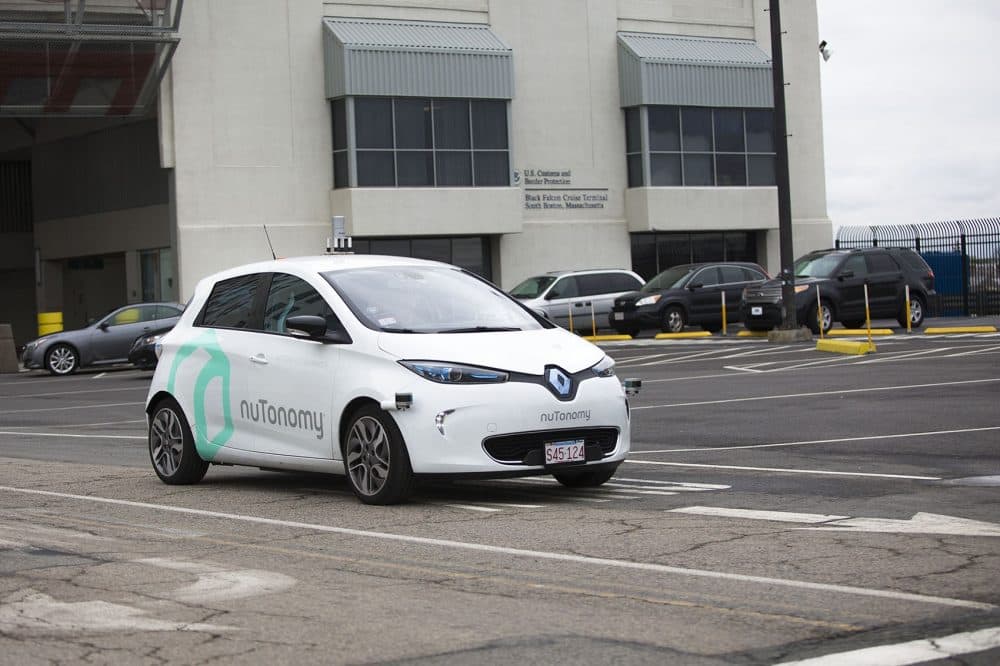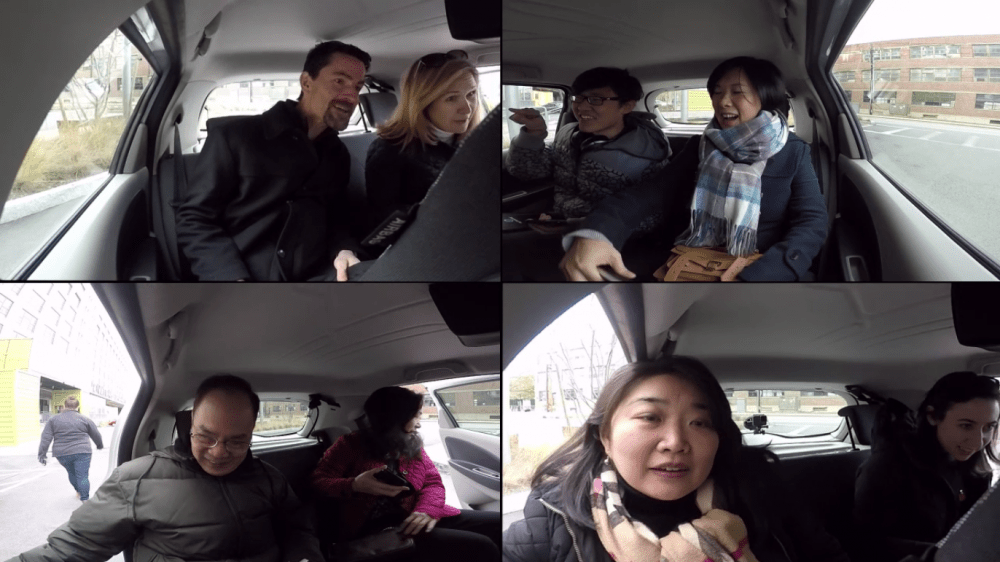Advertisement
2 Boston Companies Move To Put Passengers In Self-Driving Cars

The use of autonomous vehicles in Massachusetts has inched forward.
Boston-based nuTonomy announced Friday that it completed its first U.S. passenger pilot program in Boston. The company already been running similar tests in Singapore, and nuTonomy has been trying out its self-driving cars (without passengers and only an engineer inside) in the Seaport District since January.
Over a two-week trial in November, a select group of volunteers tested out nuTonomy's self-driving cars in Boston. The participants hailed a ride using the company's booking app. The trips they took looped around the Seaport District, starting at the company's Drydock Ave. office and moving onto Summer Street into downtown Boston and back along Congress Street.
"Universally, people felt safe in the cars. Some people felt that the cars were almost too safe, a little bit too cautious."
Karl Iagnemma, nuTonomy president
Karl Iagnemma, the president of nuTonomy, said the company wanted to give people a chance to experience the technology — and give nuTonomy the opportunity to collect feedback from a range of consumers. Some of the passengers included seniors and people with visual impairments.
"Universally, people felt safe in the cars," Iagnemma said. "Some people felt that the cars were almost too safe, a little bit too cautious."
For nuTonomy, the pilot is a crucial step in understanding how autonomous vehicles can be used for ride-hailing. The company has its sights set on launching a commercial self-driving car service in Singapore in 2018. The country is a key part of nuTonomy's strategy to launch the world's first robot taxi fleet. That's mainly because regulations are easier to navigate in Singapore, according to the company.
Meanwhile, in Massachusetts — as with elsewhere in the U.S. — lawmakers are still grappling with how to regulate autonomous vehicles.
But the passenger trial in Boston is perhaps a promising move for companies hoping to bring self-driving vehicles to the state.
NuTonomy, which originally spun out of MIT, was acquired by auto supplier Delphi Automotive in October. That company also acquired another self-driving software company, Ottomatika Inc., two years ago.
NuTonomy has also partnered with Lyft to bring a driverless ride-hailing pilot to Boston. Iagnemma said the Lyft partnership will be the next phase of its passenger pilot program. In that pilot, riders would be able to use the Lyft app to hail a nuTonomy self-driving car. Iagnemma said the company plans to start the Lyft pilot program by the end of the year.

Another MIT spinoff is also looking to transport passengers in autonomous vehicles — just 12 miles south of Boston.
This week, Boston-based Optimus Ride announced its teaming up with real estate developer LStar Ventures to pilot its own autonomous vehicle program. The pilot will take place at Union Point -- a new development at the site of the former South Weymouth Naval Air Station.
Under the 18-month pilot program, residents in the 1,550-acre mixed-use development can travel within the site in a driverless car and connect to the South Weymouth commuter rail station. Residents will be able to summon a driverless car using an app. The service will be free to residents during the pilot program.
There are six miles of roadways at Union Point with another four miles being built this year, according to Matthew Barry, a division president at LStar Ventures. Most residents live within a half mile of the commuter rail station, and there are businesses being built that may be a couple miles away, according to Barry.
The developers at Union Point may also potentially explore various business models, including having companies pay for shuttle services.
"We think of this as an opportunity to have a laboratory and to test the future of not only technologies but the future of transportation," Barry said.
About 2,000 people live in Union Point today, and the so-called "smart city" says it may one day accommodate between 10,000 and 15,000 people, Barry said. The development aims to ultimately have 4,000 housing units (there are currently about 1,200 occupied and anther 853 in development).
Optimus Ride has already been testing self-driving cars in Boston's Seaport District after receiving approval from the city of Boston and the Massachusetts Department of Transportation. The company expects the passenger pilot program to begin by early 2018.
